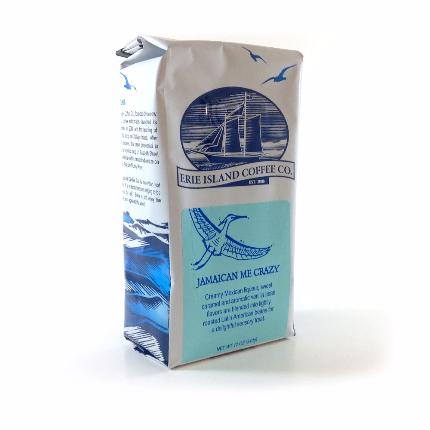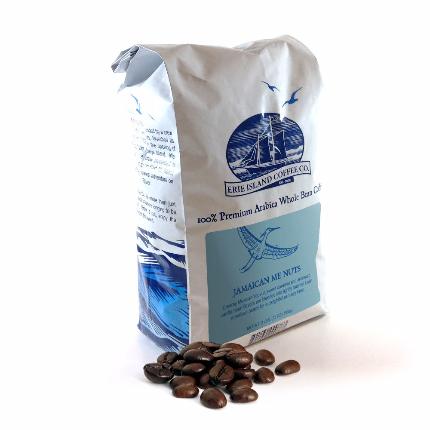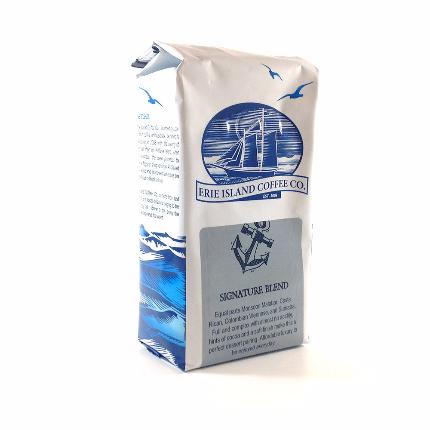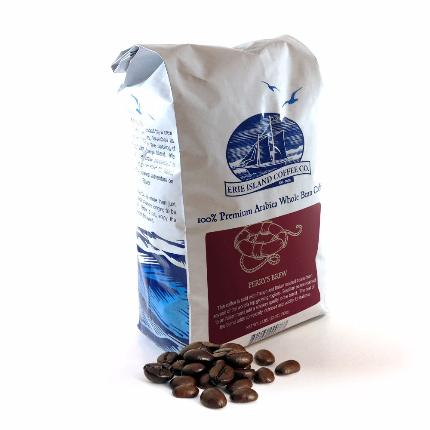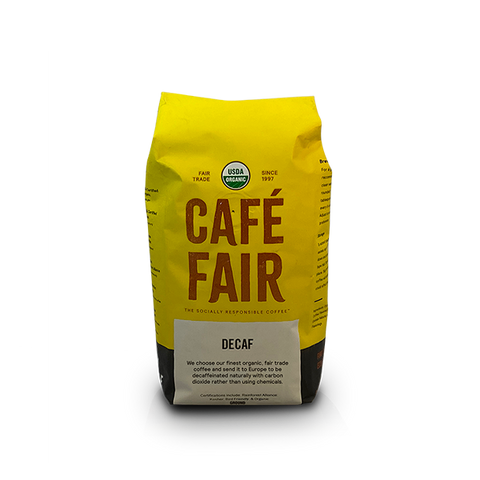
Our No Chemical Decaf Process
Did you know that coffee beans are green when they’re first picked? The roasting process gives them their delicious aroma and deep, dark appearance. Before these green beans can be roasted, they can also be decaffeinated. The traditional and common method of decaffeination uses chemical solvents to strip the caffeine from the bean. The caffeine is taken out, and so is some of coffee’s delicious flavors. Plus, who wants to drink a coffee that was chemically altered?
Enter a better, chemical-free decaffeination method known as the carbon dioxide (CO2) process. This keeps the decaf beans organic (chemical-free) and helps the coffee remain just as flavorful as its full-caffeine counterpart. Here’s how it works:
- Green coffee beans are covered with water and sealed in a special extraction chamber.
- Liquid Carbon Dioxide is sent into the chamber.
- This creates a pressure that naturally extracts the caffeine from each bean.
Is the CO2 process considered natural?
Yes! Carbon dioxide is a naturally occurring gas that plants need to breathe – and convert for us into oxygen. Therefore, this method will produce the healthiest decaf coffee.
Flavor Profile
Our Cafe Fair Organic Decaf Coffee flavor is mild with sweet coffee flavor notes that has hints of citrus and cherry. Giving those who want the option of a decaf blend without sacrificing any of that delicious coffee flavor.
Organic Decaf Coffee: 10oz Ground
Cafe Fair
At Caruso’s Coffee, we take decaf coffee seriously. We choose only the finest organic fair-trade coffee beans and send them to Europe to undergo a special decaffeination process that uses carbon dioxide rather than harsh chemicals. The result is a cup of coffee that delivers all the robust, rich flavor you expect, with none of the caffeine.
- Ground coffee beans
- 10 oz
- Cafe Fair Coffee
- Medium Roast
- Certified Organic
- Rainforest Alliance Certified
- Fair Trade Certified

Our No Chemical Decaf Process
Did you know that coffee beans are green when they’re first picked? The roasting process gives them their delicious aroma and deep, dark appearance. Before these green beans can be roasted, they can also be decaffeinated. The traditional and common method of decaffeination uses chemical solvents to strip the caffeine from the bean. The caffeine is taken out, and so is some of coffee’s delicious flavors. Plus, who wants to drink a coffee that was chemically altered?
Enter a better, chemical-free decaffeination method known as the carbon dioxide (CO2) process. This keeps the decaf beans organic (chemical-free) and helps the coffee remain just as flavorful as its full-caffeine counterpart. Here’s how it works:
- Green coffee beans are covered with water and sealed in a special extraction chamber.
- Liquid Carbon Dioxide is sent into the chamber.
- This creates a pressure that naturally extracts the caffeine from each bean.
Is the CO2 process considered natural?
Yes! Carbon dioxide is a naturally occurring gas that plants need to breathe – and convert for us into oxygen. Therefore, this method will produce the healthiest decaf coffee.
Flavor Profile
Our Cafe Fair Organic Decaf Coffee flavor is mild with sweet coffee flavor notes that has hints of citrus and cherry. Giving those who want the option of a decaf blend without sacrificing any of that delicious coffee flavor.
How are Organic Decaf Coffee Beans Grown?
Caruso’s decaf organic coffee beans aren’t just processed without harmful chemicals – they’re also grown that way. To be certified USDA organic, coffee beans must be grown -- from planting to harvesting – in a way that doesn’t use synthetic fertilizers, pesticides, herbicides or fungicides. While this method of agriculture requires more care, the benefits extend from the growing field to the coffee pot. Field workers are exposed to fewer chemicals, since only natural fertilizers are used to produce the best organic coffee beans. Organic coffee farms emit less carbon into the air and water. The soil remains healthier. And coffee drinkers get beans that are higher in antioxidants. When looking for true organic coffee, seek out these labels:
USDA Organic
According to the United States Department of Agriculture, for products to use the USDA Organic Seal, coffee growers and processors must follow strict growing, production, handling, and labeling standards and go through a certification process. The standards address a variety of factors such as soil quality, as well as pest and weed control. Synthetic fertilizers, irradiation and genetic engineering may not be used.
Fair Trade Certified™
The fairtrade movement grew out of a mission to create better, more humane living and working conditions for the millions of people who earn a living in the coffee growing industry. The Fair Trade Certified™ process remains one of the most rigorous sourcing certification programs in the coffee industry, meeting exacting social, environmental and economic standards.
Bird Friendly®
Did you know that coffee beans that are grown in the sun are often not organic; instead, they come from hybrid plants. True organic coffee plants are those grown only in the shade – providing valuable habitat for birds and wildlife. The Smithsonian Migratory Bird Center sponsors this certification program to: “preserve critical habitat for birds and wildlife, fight climate change, protect biodiversity, and support farmers committed to conserving bird and wildlife habitat by farming sustainably.”
Rainforest Alliance Certified
The Rainforest Alliance is an international non-profit organization that works to protect forests while being mindful of the need for farmers to grow healthy foods to feed families and communities. The Rainforest Alliance certification seal means that the product was grown with these practices in mind.
What Brew Method Should You Use for Organic Decaffeinated Coffee?
Automatic drip coffee brewers make it easy to get your cup of organic decaf coffee quickly. Yet, the flavor may not be as pure as it can be. The best tip for brewing quickly in an automatic drip maker is to grind your beans no more than a week ahead of using them, store them in air-tight container, and use fresh, filtered water for your brew.
Want to try something a little different from the popular methods? Consider the classic “pour over” method for making your coffee. This old-school technique was used at the turn of the 19th century for brewing and uses three basic tools – a cup, a ceramic filter to hold your coffee grounds and a carafe of boiling water. The process is simple:
- Grind your beans to a medium-course consistency
- Put your grinds in the filter, placed over your cup
- Boil fresh, filtered water
- Once boiling, let the water cool for a few minutes to avoid burning the grinds
- Pour the hot water slowly over the grinds using a smooth, swirling motion
- Voila! Remove your filter and enjoy the delicious cup of coffee!
FAQ
Where is Cafe Fair Organic Decaf Coffee made?
We roast the beans in our roasting facility located in Brecksville, Ohio.
What coffee beans are used to make Cafe Fair Organic Decaf coffee?
100 % Fair Trade Organic and decaffeinated using the Swiss Water Method. It is the only decaffeinated green Caruso’s Coffee have as organic.
What does 'No Chemical' Decaffeination mean?
Traditional decaffeination processes use chemicals to “strip” naturally occurring caffeine from each coffee bean. Processes that don’t use chemicals – such as the carbon dioxide process – create a more naturally decaffeinated bean.
Is this a low-acid coffee?
Decaf coffee naturally has a lower acidity level than other types of coffee. People who suffer from conditions such as acid reflux often switch to “drinking decaf” to help manage their condition. The secret is to choose a high-quality, flavorful bean.

Awesome Decaf
I love coffee and have been drinking it for years. About ten years ago I began having seizures and could no longer have Caffeine. I searched and searched for many years for a good decaf coffee until I came along Cafe Fair. This is by far the best decaf I've ever had.
Miss the big bags
I love Cafe Fair coffe, but what happened to the big bags.
Great tasting bird friendly decaf
I didn't know there was great-tasting decaf until I found Cafe Fair. I'm so glad I found this decaf. I've place a couple of orders and will keep ordering.
Cafe Fair good but packages too small
It’s hard to find fair trade coffee in larger sizes. We wish we could buy 3 lbs at a time to make it worth having it shipped and the extra packaging to ship. Thank you!




